The Enright Self-Forgiveness Inventory
$0.00
Description
There has been a growing scholarly interest in the past few years in the virtue of forgiveness practiced toward the self. That increasing attention to self-forgiveness has, in fact, led to the development of major publications dedicated to the psychology of self-forgiveness.
As a part of the development of this burgeoning field, several self-forgiveness measures have been proposed and validated that have contributed to the study of self-forgiveness in unique and different ways. None of those existing measures, however, adequately captures the idea that self-forgiveness is a moral virtue that includes behavior toward the self.
Because of that absence, Dr. Robert Enright, co-founder of the International Forgiveness Institute (IFI) and the man TIME magazine called “the forgiveness trailblazer,” put together a research team that set out to develop and validate just such a tool. Thus was born the Enright Self-Forgiveness Inventory (ESFI) based on the conceptualization of forgiveness as a moral virtue. The ESFI is a 30-item scale featuring six subscales with five items each (positive and negative affect toward the self, positive and negative thoughts toward the self, and positive and negative behavior toward the self). Five additional items at the end of the scale allow for measurement of pseudo self-forgiveness (PSF).
Dr. Enright, a UW-Madison (WI) educational psychologist, teamed up with two psychologists from Liberty University (Lynchburg, VA), Jichan J. Kim and Fred Volk, with the goal of making the ESFI available to researchers and clinicians as a research and clinical tool with a sound theoretical foundation and psychometric properties for future research and practice.
Adopting the definition of forgiveness developed by Dr. Enright and psychiatrist Richard Fitzgibbons in their 2015 groundbreaking clinical manual Forgiveness Therapy, the ESFI research team defined self-forgiveness this way:
“People, on rationally determining that they have offended themselves by violating their sense of justice, self-forgive when they willfully abandon self-resentment and related responses (which begin as natural reactions when the violation of justice is acknowledged but can turn into toxic self-loathing) and endeavor to respond to themselves based on the moral principle of beneficence, which may include compassion, unconditional worth, generosity, and moral love.”
Based on that definition, the team then validated the ESFI in a series of four studies that: 1) explored the factor structure of each of the six subscale item pools; 2) conducted confirmatory factor analyses to identify the best 30-item ESFI; 3) examined construct validity by comparing the ESFI to other psychological and emotional constructs; and, 4) confirmed convergent validity by comparing the ESFI to another psychometrically sound self-forgiveness scale.
The team’s final report, “Validating the Enright Self-Forgiveness Inventory (ESFI),” was published on January 3, 2021 in Current Psychology. According to the report, “the ESFI is a reliable and valid scale ready for use in research and mental health practice. . . In our view, and the research here seems to support this, self-forgiveness is a moral virtue, not a psychological technique. Other existing measures of self-forgiveness do not adequately capture this Aristotelian view of forgiveness as a moral virtue practiced toward the self.”
Researchers and clinicians can use the ESFI as a clinical tool to see who might benefit from self-forgiveness interventions and document their progress toward self-forgiveness. With the pseudo self-forgiveness items available, researchers also can see who is ready for a self-forgiveness intervention (because without acknowledging one’s wrongdoing, self-forgiveness is not appropriate), and also, when pseudo self-forgiveness items are compared before and after, they can evaluate whether or not participants/clients are moving toward self-excusing or self-exoneration instead of genuine self-forgiveness. Since the bifactor (6 × 1) model of the ESFI was confirmed, both the total and subscale scores can be used to assess, evaluate, and compare self-forgivers.
Because Dr. Enright wants to share this measure with as many researchers and clinicians as possible, the International Forgiveness Institute is making the complete Inventory available at no cost. It is available in downloadable electronic format and can be accessed with a coded link that will be sent to you via email after you request a copy of the ESFI.

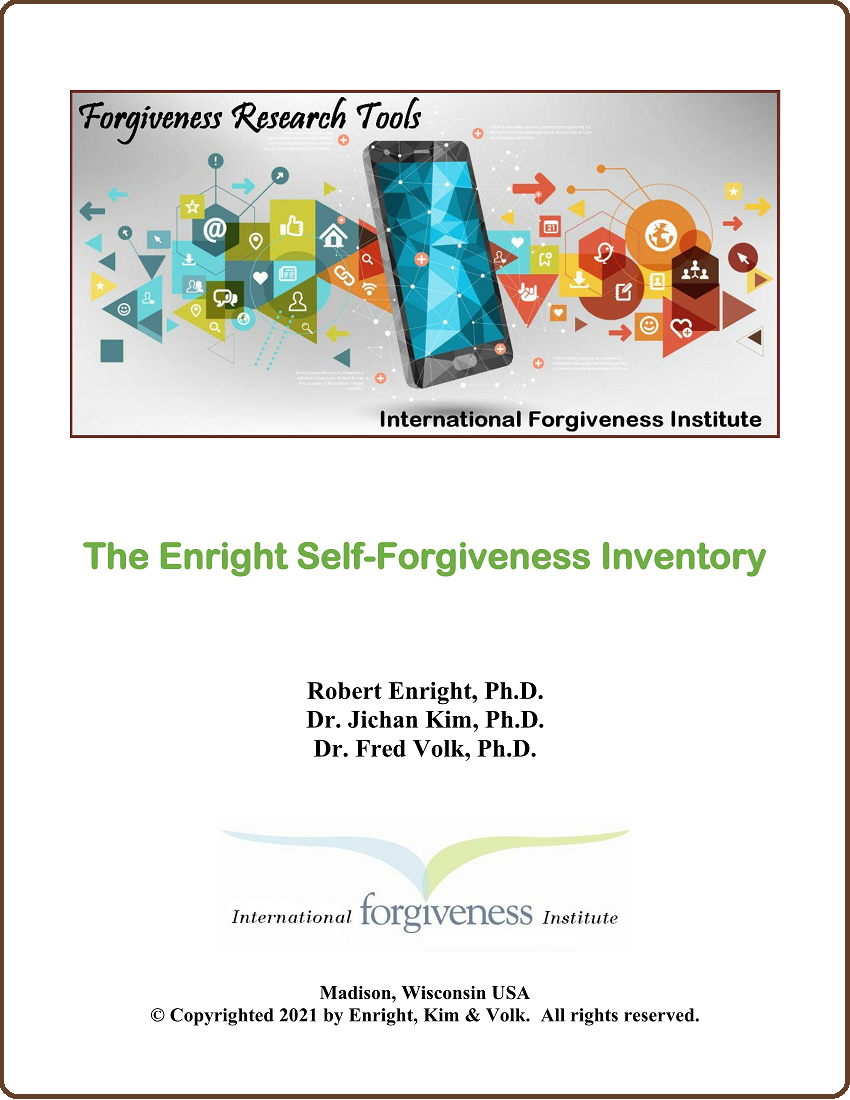
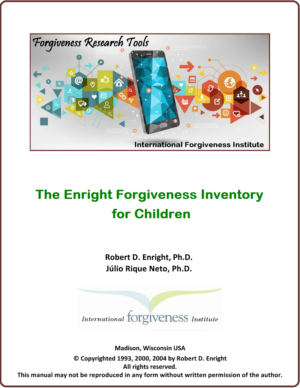
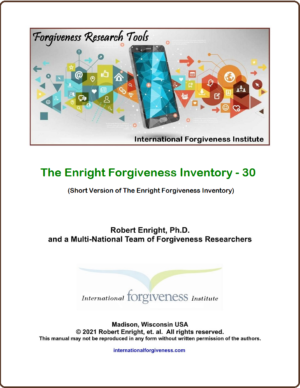
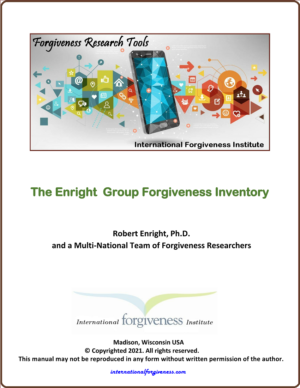
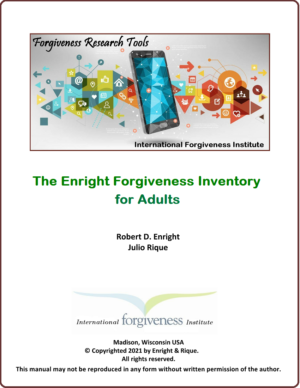



Reviews
There are no reviews yet.